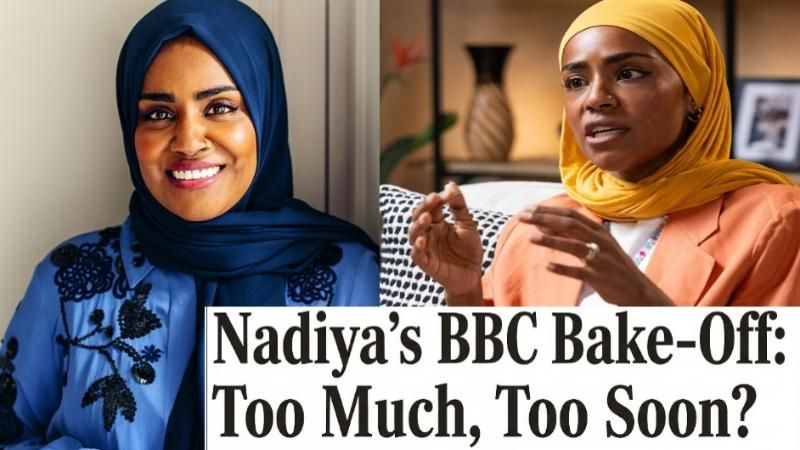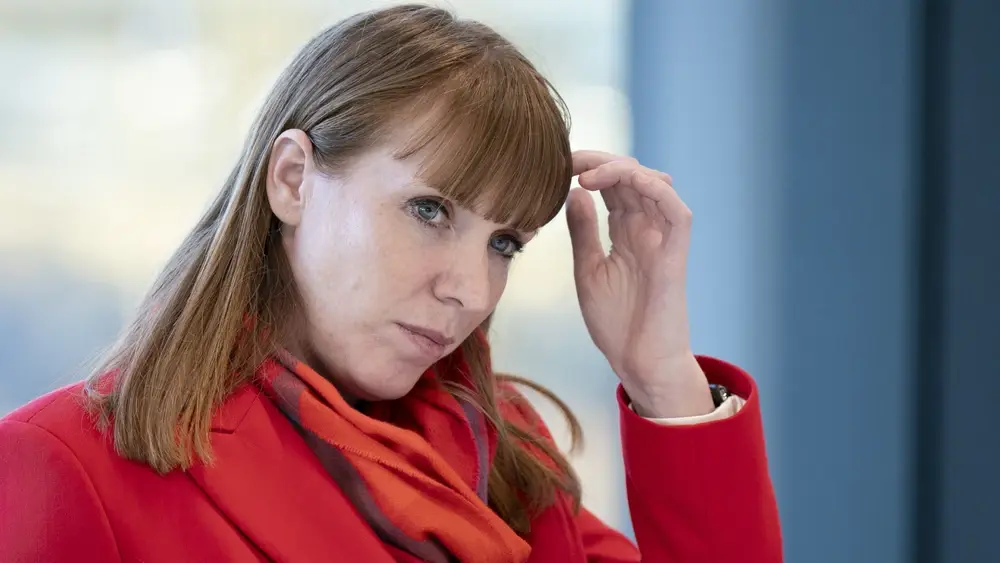Baking sensation Nadiya Hussain, who shot to fame after winning the 2015 Great British Bake Off, has publicly lashed out at the BBC following the cancellation of her cookery series. Hussain, 40, didn't mince words, asserting that broadcasters "will keep you until you're of no use to them," a bold claim that has stirred debate and led some to question the celebrity chef's motives.
Last month, news broke that the BBC would not recommission her programme, prompting an immediate and strong reaction from Hussain. She took to social media, declaring her right to feel "angry when I'm treated unfairly," setting the stage for a more detailed discussion on the "We Need to Talk" podcast with Paul C Brunson.
Playing the Victim? Hussain's Critique of the Industry
During the podcast, Hussain delved into her experiences as a minority woman in British media. She suggested that her willingness to "speak her truth" might have contributed to the BBC's decision, describing a perceived pressure to conform to a "neutral" and "unbiased" image – the "People's Muslim," the "digestible version" of herself.
"They'll keep you till you're of no use to them. And I think that's what happened," Hussain stated, echoing a sentiment her husband, Abdal Hussain, had reportedly long anticipated. According to Nadiya, he warned her that she would eventually "not fit the box" the industry had crafted for her. Her defiant response – "I'm not comfortable in boxes anyway. I prefer glass ceilings to smash through, thank you very much" – struck some as overly dramatic.
Hussain stated she was never given an exact reason for the cancellation of shows like Nadiya's Asian Odyssey, Nadiya's Cook Once Eat Twice, and Nadiya's Time to Eat, seemingly implying a lack of transparency or respect from the broadcaster.
The "Ungrateful" Narrative: Nadiya Challenges Expectations
Central to Nadiya's impassioned social media statement, which followed the initial news of the axe, was her pointed critique of the expectation of constant gratitude, especially for individuals from immigrant backgrounds. She claimed this instilled sense of gratitude, observed in her family, compelled her to always be thankful, even when feeling "tired, lonely or disrespected."
"Gratitude became something that I was expected to wear like a uniform," she lamented in an Instagram video. "Anytime I voiced frustration or sadness or wanted more, I could feel the invisible pressure, like how dare you complain? Aren't you just lucky to be here?"
While she powerfully articulated her right to feel more than just thankful, asserting her right to feel "angry when I'm treated unfairly" and "allowed to want better for myself and for my family," some observers found her stance to be self-serving. Her declaration, "I've got here through hard work, through determination, through talent. So no, I won't be grateful. I got here because I'm good at what I do," has been interpreted by critics as a sign of entitlement rather than empowerment.
BBC Stays Professional as Nadiya Eyes New Horizons
In a measured response to Hussain's strong comments, a BBC spokesperson simply stated: "After several wonderful series we have made the difficult decision not to commission another cookery show with Nadiya Hussain at the moment. Nadiya remains a much valued part of the BBC family, and we look forward to working together on future projects." This polite, non-committal statement stands in stark contrast to Hussain's public grievances.
Despite the highly publicised setback, Hussain claims to be optimistic, viewing this as a "huge turning point" that has solidified her resolve to "dig my heels in" and seek collaborations with those who "believe in voices of people like me." She highlighted the perceived challenges of being a Muslim woman in an industry that, according to her, doesn't always "support people like me or recognise my talent or my full potential," citing "gaslighting" as an issue.
A Decade in the Spotlight: From Bake Off to Bitter Endings?
Since her meteoric rise winning The Great British Bake Off almost a decade ago, Nadiya Hussain has certainly built a considerable media profile. Beyond her BBC cookery shows, her career has included judging Junior Bake Off, reporting for The One Show, and appearing on Loose Women.
Hussain is also a prolific author, with a string of cookery books like Nadiya's Kitchen and Cook Once, Eat Twice, alongside novels such as The Secret Lives of the Amir Sisters.
In her personal life, Nadiya married Abdal Hussain in an arranged marriage at 19. They have three children and renewed their vows in 2018. While she often speaks of her Bangladeshi heritage, having explored it in The Chronicles of Nadiya, she was born and raised in Luton, England.
Public Reaction: Is Nadiya's Message Resonating or Repelling?
The public's reaction to Nadiya Hussain's recent statements is sharply divided. While some commenters express strong support, lauding her honesty and courage in speaking out against perceived media injustices, a significant portion remain critical.
Many accuse her of being "ungrateful" or "entitled," suggesting she should be more appreciative of the considerable opportunities she has received from the BBC. Comments frequently frame her as an "attention-seeker" or complain about what they view as excessive focus on identity politics in her narrative. Others point out that television commissioning is a business decision, and broadcasters are not obligated to indefinitely renew contracts. This polarized public discourse highlights the contentious nature of celebrity complaints and the public's often unforgiving view of perceived grievances from those in the limelight.








.svg)



